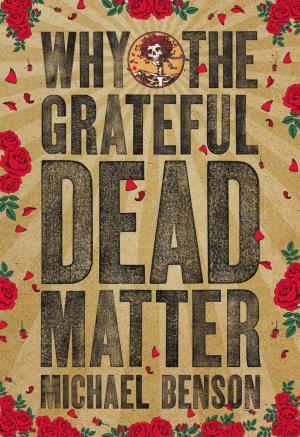The Quest for the Golden Trout
Environmental Loss and America’s Iconic Fish
Nonfiction, Science & Nature, Nature, Fish & Ocean Life, Fish, Environment, Environmental Conservation & Protection| Author: | Douglas M. Thompson | ISBN: | 9781611684827 |
| Publisher: | University Press of New England | Publication: | September 22, 2013 |
| Imprint: | University Press of New England | Language: | English |
| Author: | Douglas M. Thompson |
| ISBN: | 9781611684827 |
| Publisher: | University Press of New England |
| Publication: | September 22, 2013 |
| Imprint: | University Press of New England |
| Language: | English |
The angler’s dream of fishing pristine waters in unspoiled country for sleek, healthy trout has turned fishing into a form of theater. It is a manufactured experience—much to the detriment of our rivers and streams. Americans’ love of trout has reached a level of fervor that borders on the religious. Federal and state agencies, as well as nongovernmental lobbying groups, invest billions of dollars on river restoration projects and fish-stocking programs. Yet, their decisions are based on faulty logic and risk destroying species they are tasked with protecting. River ecosystems are modified with engineered structures to improve fishing, native species that compete with trout are eradicated, and nonnative invasive game fish are indiscriminately introduced, genetically modified, and selectively bred to produce more appealing targets for anglers—including the freakishly contrived “golden trout.” The Quest for the Golden Trout is about looking at our nation’s rivers with a more critical eye—and asking more questions about both historic and current practices in fisheries management.
The angler’s dream of fishing pristine waters in unspoiled country for sleek, healthy trout has turned fishing into a form of theater. It is a manufactured experience—much to the detriment of our rivers and streams. Americans’ love of trout has reached a level of fervor that borders on the religious. Federal and state agencies, as well as nongovernmental lobbying groups, invest billions of dollars on river restoration projects and fish-stocking programs. Yet, their decisions are based on faulty logic and risk destroying species they are tasked with protecting. River ecosystems are modified with engineered structures to improve fishing, native species that compete with trout are eradicated, and nonnative invasive game fish are indiscriminately introduced, genetically modified, and selectively bred to produce more appealing targets for anglers—including the freakishly contrived “golden trout.” The Quest for the Golden Trout is about looking at our nation’s rivers with a more critical eye—and asking more questions about both historic and current practices in fisheries management.















